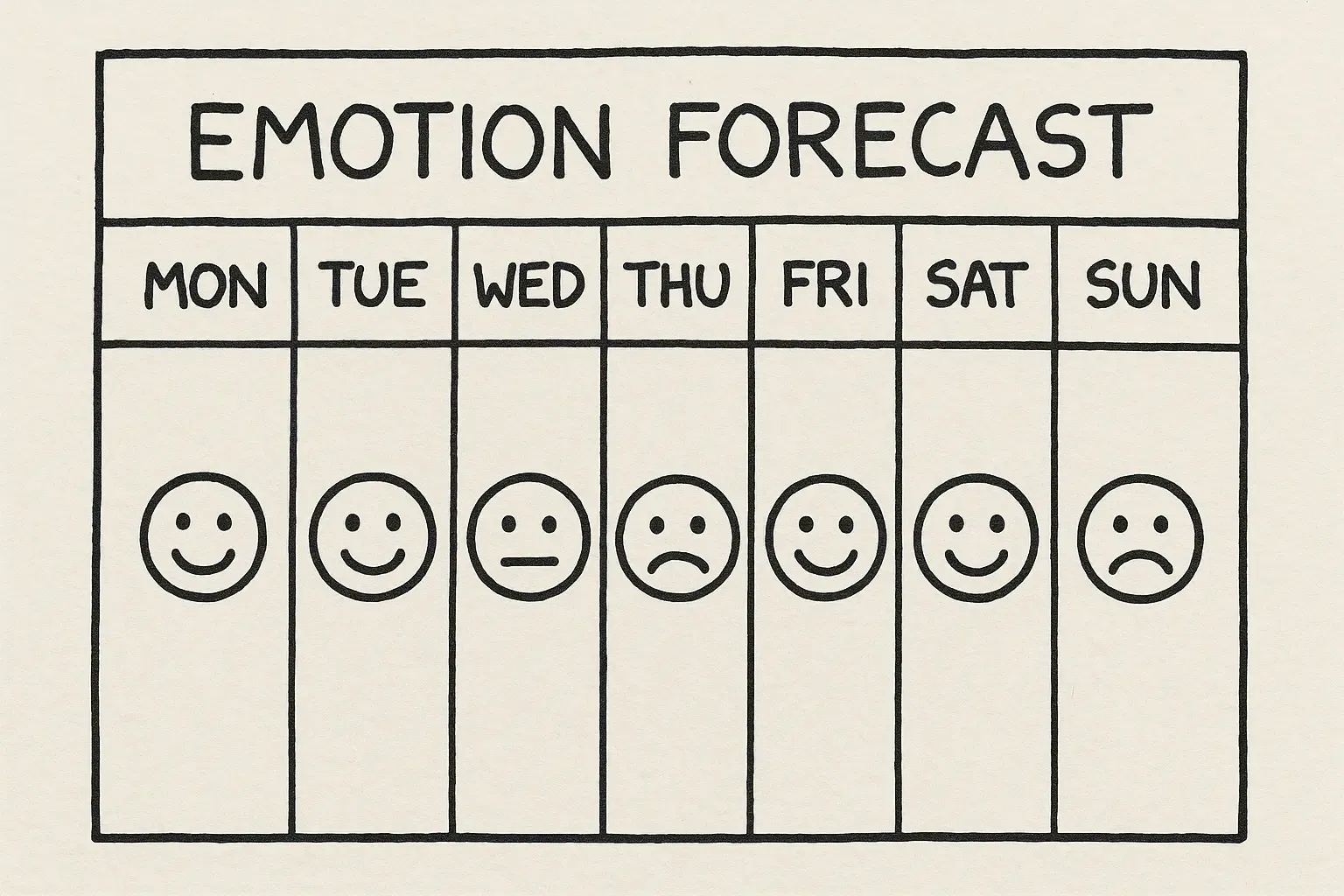When Forever Feelings Faded

Rea,
How long do you think an emotion lasts? Sometimes when we’re feeling upset, it feels like it will last forever. But our brains are actually terrible at predicting how long our feelings will last.
Harvard psychologist Daniel Gilbert noticed something strange about how people make decisions. We often base choices on how we think we’ll feel in the future, but what if those predictions are wrong? In the 1990s, Gilbert set up experiments to measure what he called our “emotional forecasting error.”
In one study, students predicted that getting a bad grade would make them miserable for weeks. When Gilbert followed up with them, most felt better after just a few days. Their emotional predictions were way off! Gilbert wanted to know if this happened with other experiences too.
In his most famous study from 1998, Gilbert tracked people’s actual emotions versus their predictions. The results were eye-opening. People predicted negative events would make them sad for over 6 months, but most recovered within just 3 weeks. That’s a 700% overestimation! Gilbert called this the “impact bias” - our tendency to overestimate both the intensity and duration of our future emotions.
Gilbert’s team expanded their research to include all kinds of situations. Sports fans predicted they’d be devastated for weeks after their team lost, but their sadness typically faded after just 3-4 days. Election voters thought they’d be elated or crushed for months, but most returned to their emotional baseline within 10 days. Even lottery winners, who expected lasting happiness, returned to their normal mood faster than they predicted.
Gilbert discovered that we all have an “emotional immune system” - our mind’s ability to process and recover from emotional events. Like our physical immune system. This system helps us adapt to new situations and recover from setbacks much faster than we expect.
Emotions aren’t permanent climate changes - they’re more like weather patterns that move through. This doesn’t mean your feelings aren’t real or important. They absolutely are! It just means that even the strongest storms eventually pass, making way for clearer skies.
Love, Abba
P.S. Next time you’re feeling really upset about something, try this experiment: On a scale of 1-10, write down how bad you feel right now. Then check in again tomorrow and the next day. You might be surprised to see how the number changes, even when you were sure it would stay the same forever.
